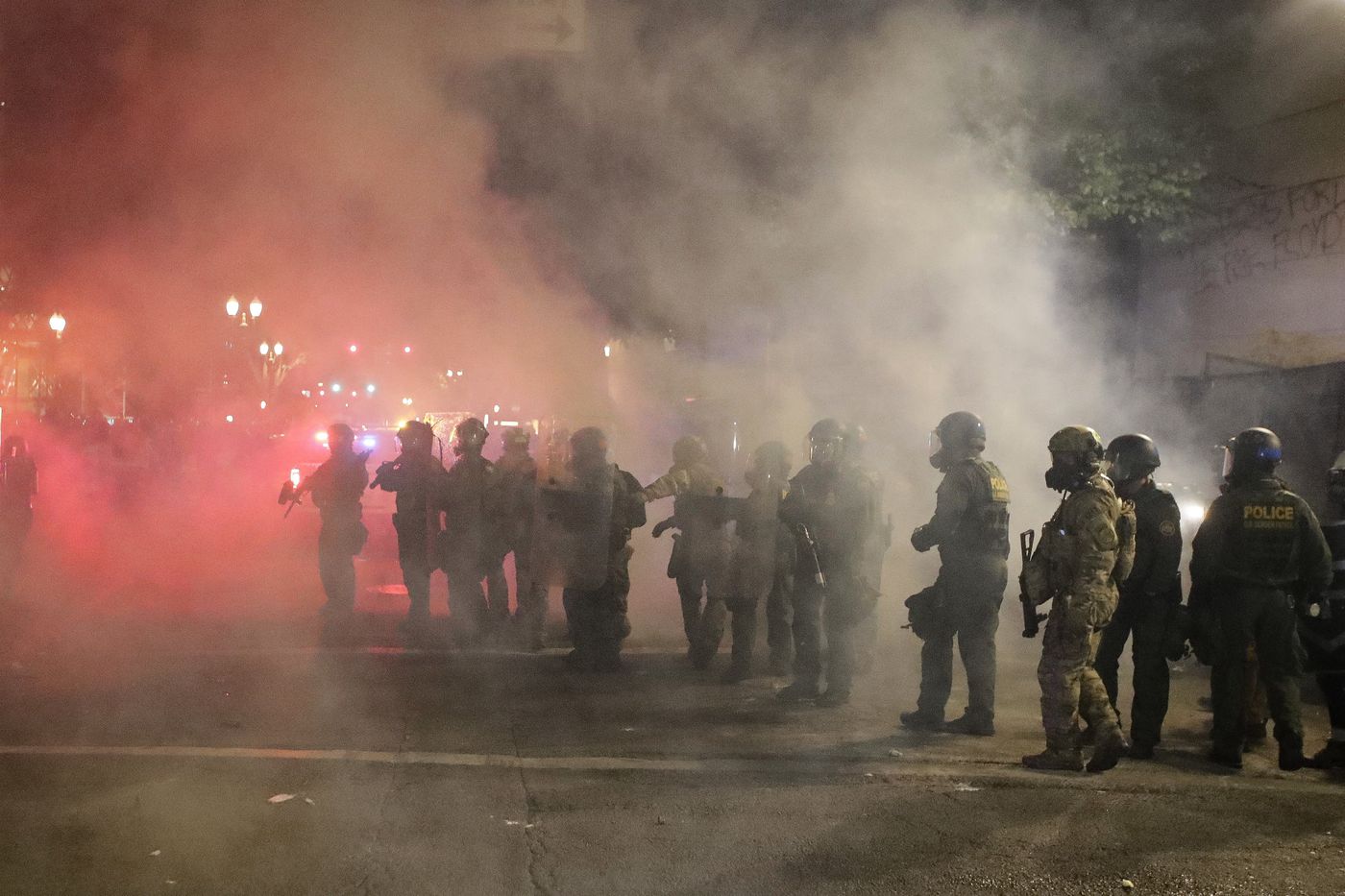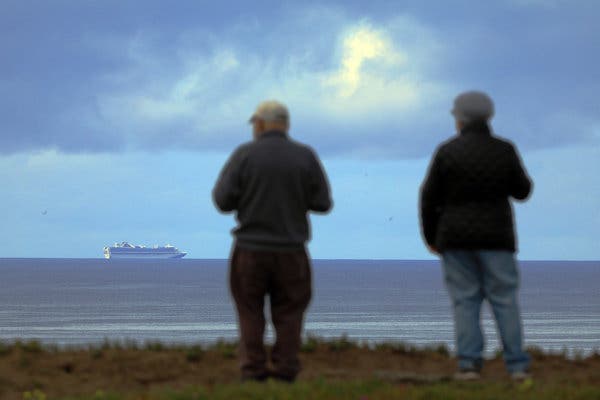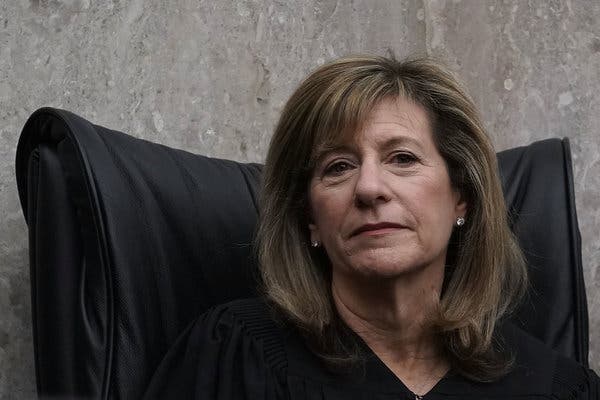Earlier this week, Minneapolis Mayor Jacob Frey infuriated President Donald Trump when he demanded the commander-in-chief pay a $530,000 public safety bill connected to tonight’s scheduled “Keep America Great” re-election rally at the city-owned Target Center.
Matters grew ugly. Quickly.
Trump’s campaign called the request an “outrageous abuse of power.”
Trump himself went on a tweet rampage: “Someone please tell the Radical Left Mayor of Minneapolis that he can’t price out Free Speech. Probably illegal! I stand strongly & proudly with the great Police Officers and Law Enforcement of Minneapolis and the Great State of Minnesota!”
Trump officials then threatened to sue AEG, the private company that manages the Target Center on behalf of Minneapolis, if it didn’t honor a signed contract.

Ultimately, AEG didn’t press the security payment issue and Trump didn’t pull out. The rally remains on.
But Frey, a member of the Minnesota Democratic-Farmer-Labor Party, says he won’t quit in his attempt to recoup public safety costs from a Republican president who has consistently refused to pay police bills cities send his campaign committee.
In all, 10 city governments — from Spokane, Washington, to Erie, Pennsylvania — say that Trump’s campaign owes them a combined $841,219, the Center for Public Integrity reported in June.
El Paso, Texas, alone wants Trump to pay $470,417 stemming from a rally in February — now more than $569,000 after the city hit Trump’s campaign with a late fee.
Public Integrity spoke with Frey on Thursday morning. This interview has been lightly edited for length and clarity:
Center for Public Integrity: Why did you draw such a hard line with President Trump over his campaign paying public safety bills?
Minneapolis Mayor Jacob Frey: “It’s my responsibility to look after the taxpayers of the city of Minneapolis. We know from past experience throughout the country that Donald Trump doesn’t pay his bills. He mentioned it was ‘extortion’ the other day. It’s not extortion to ask somebody to pay their bill even when they don’t really want to pay their bills. I thought it was important to do my job and look out for our residents.”
Public Integrity: The issue of presidential candidates — Democrats and Republicans — not paying public safety bills isn’t new. Should Congress address this by giving the Secret Service money to reimburse local governments for public safety services they request?
Frey: “Cities are already substantially deprived of federal funds they used to get. Cities are already charged with doing a lot of the more difficult and controversial work when the buck is passed down and the federal government refuses to act. The least we could get is our costs taken care of when something like this goes down. It makes sense.”
Public Integrity: Are you surprised by the Trump campaign’s reaction to Minneapolis pressing Trump to pay police bills, particularly since the president frequently talks about how much he supports law enforcement officials?
Frey: “I don’t think anybody is ever surprised by anything Donald Trump says on a daily basis. I can never predict some of the garbage that comes out of his mouth on a daily basis. I support our police officers of the Minneapolis Police Department. We’re trying to get them paid by the individual who, in my opinion, owes them the bill. If he supports police officers so much, it’s kind of odd that he’d fight paying their overtime expenses so hard.”
Public Integrity: You still want the Trump campaign to pay for public safety costs. How will you do that when a city contractor, not Minneapolis City Hall, signed a contract with the Trump campaign to use the Target Center?
Frey: “We made it clear to AEG that associated costs as would fit in the contract would need to be recouped. But as to how AEG handles the agreement with the Trump campaign? That is their prerogative.”
Public Integrity: What’s your position on Democratic presidential candidates paying public safety bills when they visit Minneapolis?
Frey: “Same position. It’s not a political position. It’s a position on behalf of our taxpayers … our ability to recoup funds is not ideological or partisan.”
Public Integrity: Will Minneapolis in any way reduce its police and public safety services during the president’s visit?
Frey: “Our number one priority over the next 24 hours is public safety. It’s safety whether you’re attending in support or protesting in opposition. It is our top priority to make sure people are safe. I’ve been working constantly with our Chief [Medaria] Arradondo, and he’s in turn been working with surrounding jurisdictions and the Secret Service, to make sure we can do just that.”
Public Integrity: Did you ever consider withholding Minneapolis public safety services from the president?
Frey: “No. That would be irresponsible.”
Public Integrity: What advice do you have for other cities that host large-scale presidential campaign rallies during 2020 and are concerned Trump, or another presidential campaign, won’t help defray public safety costs?
Frey: “Under ordinary circumstances, I’d be honored to welcome a sitting president of the United States to Minneapolis. And I’m sure that under ordinary circumstances, mayors across the country would feel the same. But these are not ordinary circumstances. As far as the contract goes, and the ability to recoup costs, so much of it depends on whether the building is publicly owned, and the contract is publicly held … You have more ability to recoup costs with a direct contract with the campaign itself. The middle ground would be where we are. The vast majority of the time, it’s a privately held building and a privately held contract.”
• • •
When Trump conducts a campaign rally in Minneapolis or any city, they’re typically major affairs, attracting thousands — even tens-of-thousands — of revelers. Protesters come, too.
Cash-strapped city governments have little choice but to provide whatever public safety resources the Secret Service requests of them, regardless of whether the Trump rally is staged at a publicly owned facility or a privately owned one.
Yes, cities could theoretically withhold public safety services if Trump’s campaign, or any presidential campaign, refused local officials’ requests to pay police costs. But in doing so, city governments would jeopardize their own community’s public safety — something none has been willing to do.
Congress could address this situation by appropriating money to the Secret Service for the purpose of reimbursing local governments for help during visits by presidential candidates under their protection.
Lawmakers could also conceivably amend federal campaign finance laws to mandate presidential candidates account for and address public safety invoices they receive from local governments.
Trump’s campaign, for example, doesn’t even list local government public safety bills in the “debt” section of its periodic campaign finance disclosures.
Historically, some cities choose to invoice presidential campaigns for public safety costs while others — for various reasons — do not. Earlier this decade, President Barack Obama’s presidential campaign ignored some police bills while paying others. Hillary Clinton paid most, but not all — a $2,678 invoice from Philadelphia remains unpaid. During the 2020 presidential election, some Democratic candidates have said they’ll always pay police bills they receive. Others have been non-committal or won’t answer the question.
Minneapolis isn’t alone in its newly assertive stance toward Trump’s campaign: Green Bay, Wisconsin, is also considering how to compel presidential candidates to pay police protection bills.
Fed up with Trump and other non-paying presidential candidates over the years, Green Bay officials later this year will consider whether to require presidential candidates to apply for special event permits when conducting campaign events, said Celestine Jeffreys, chief of staff for Green Bay’s city government.
Green Bay, she added, will also explore charging sitting presidents for public safety expenses related to their visits — something the city now only reserves for presidential candidates who don’t currently occupy the White House.
When barnstorming presidential campaigns don’t help cities defray unexpected public safety costs, “these costs go directly to property taxpayers,” Jeffreys said.
Green Bay, for its part, is still waiting for the Trump campaign to pay $9,380 for public safety costs associated with a campaign rally in August 2016.


